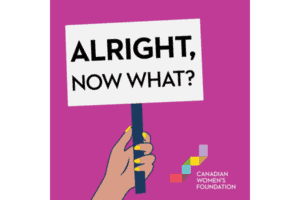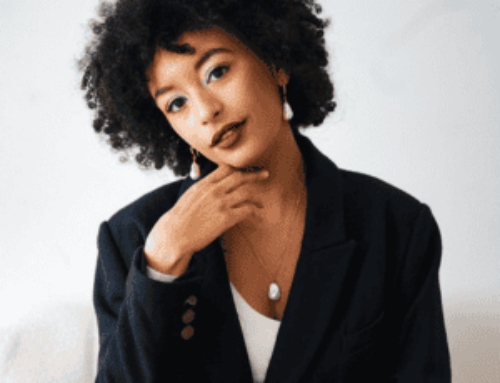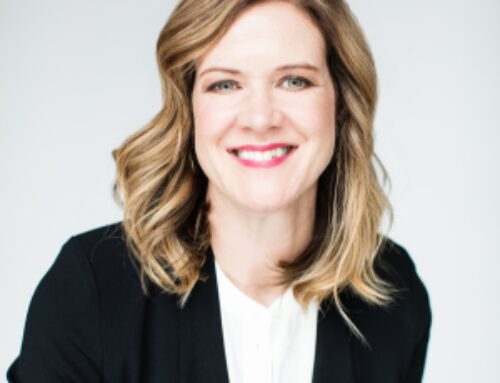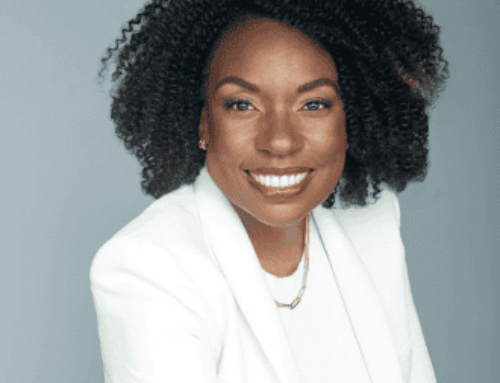 A new survey by Environics Institute for Survey Research shows that 57% of women in Canada identify as feminists, a big increase from the past. The number is especially high for young women aged 18 to 24. In addition to that, 40% of men consider themselves feminists, and 90% of people in Canada believe we need to do more to promote gender equality.
A new survey by Environics Institute for Survey Research shows that 57% of women in Canada identify as feminists, a big increase from the past. The number is especially high for young women aged 18 to 24. In addition to that, 40% of men consider themselves feminists, and 90% of people in Canada believe we need to do more to promote gender equality.
Is feminism no longer considered a “bad word”? Is calling yourself a feminist less stigmatized and is feminism actually … trending? What does this mean for the future of feminist movements and our goals of gender justice? Michelle Musindo, Manager of Community Initiatives at the Canadian Women’s Foundation, shares her perspectives and addresses the impacts of young feminists today. She also gives a helpful book recommendation in honour of the passing of bell hooks, the legendary Black feminist scholar.
Read more: The Enduring Legacy Of bell hooks by Paulette Senior, President and CEO of the Canadian Women’s Foundation (Chatelaine, 2021)
The Canadian Women’s Foundation acknowledges the support of Women and Gender Equality Canada.
Transcript
00:00:00 Andrea
Hi, I’m Andrea.
A new national survey has been released this new year. It shows that a majority of women in Canada describe themselves as feminists: 57%, a big increase over previous years.
This number is especially large amongst young women aged 18 to 24: 70% described themselves as feminist and 40% of men identify as feminists. 90% of all people in Canada think more needs to be done to promote equality of women.
Is feminism no longer the F-word?
Welcome to Alright, Now What?, a podcast of the Canadian Women’s Foundation. We put an intersectional feminist lens on stories that make you wonder “Why is this still happening?” We explore systemic roots and strategies for change that will move us closer to the goal of gender justice.
The work of the Canadian Women’s Foundation and our partners takes place on traditional First Nations, Métis, and Inuit territories. We are grateful for the opportunity to meet and work on this land. However, we recognize that land acknowledgements are not enough. We need to pursue truth, reconciliation, decolonization, and allyship in an ongoing effort to make right with all our relations.
My colleague Michelle Musindo, manager of Community Initiatives at the Canadian Women’s Foundation, joins me today to talk about this data that shows that more people than ever consider themselves feminist and what this might mean for the future of feminist movements and the systemic change for gender justice we need in Canada today.
00:01:32 Michelle
It’s a good thing. I think it’s a good thing that many more people across Canada identify themselves as feminists. I think that we are moving past the idea that feminism is only just for a certain group of people, like we are now broadening our thought process.
Housing is a feminist issue.
Education is a feminist issue.
Health care is a feminist issue that’s shown up so much in the pandemic.
Security is a feminist issue, we’re seeing people talk about gun control and violence.
It means a lot more people are seeing that a lot more things are feminist issues, and we’ve just really moved away from feminism is for a certain group of people, but not all of us are getting that.
And also, I think that we definitely need to think about what we mean by feminism. I think that there’s so many movements out there, been so many movements in the past that have excluded lots of people, so when we think about feminism in the most broadest sense, sometimes that mainstream feminism doesn’t exactly include everyone.
So, if we’re seeing more and more people identifying as feminists, it’s great, but also like what kind of ideologies are they being exposed to?
Whose voices are they hearing?
And whose voices are they not hearing?
And we know that the feminist movement or the feminist movements have been so many. And the leaders of those movements sometimes have excluded folks on purpose. When we’re talking about how people identify as feminism, I think that we need to move a little bit further and think about whose voices were putting at the forefront. And a lot of those voices are historically oppressed and marginalized communities who have been working for everybody, but however, most mainstream movements have not been working for them.
00:03:16 Andrea
So, I’m thinking about the work that you do with girls and youth-facing grantees and programs.
70% of young women aged 18 to 24 consider themselves feminists. First of all, do you see this as a sign of the time?
00:03:29 Michelle
I think of all the young people around me, and I think most of the young people around me, identify as feminists and I can’t say that when I was young there was that level of acceptance of the term, feminism and the ideology of feminism.
00:03:43 Andrea
I do wonder, though, sometimes when we’re thinking about young feminists, are we really listening to them?
How are we co-mentoring and supporting them and you know making sure that the future of our movements, plural, is strong?
Tell us a little bit about what you think around that.
00:03:59 Michelle
I think that’s a complicated question because I do think we, we do listen to young feminists. I think there are spaces where we do listen to them, but I also think that’s 100% because young feminists are at the forefront. They’re the loudest voices in a room, so they’re making us listen to them. It’s not that the movement or movements have been creating certain spaces for young feminists to come in and voice and feel like they’re invited to the table.
I think that there are instances that we are listening to young feminists, but I do think that we need to listen a little bit more and we need to support young feminist groups, young grassroots groups, youth collectives, communities that are operating sort of outside of the box who are usually supported and spearheaded by young people. At the Canadian Women’s Foundation, in the work that we do on building the field, a lot of it is done by young people and spearheaded by young people.
We fund a youth collective that’s focusing specifically on advocacy efforts around sexual violence in schools, and they’re working hard to hold their schools, communities, teachers and community members accountable around sexual violence and bullying in schools.
Well, like in the Girls Fund program, we see grantees share stories of participating and advocating for trans rights in their schools, for speaking up about using pronouns within their programming.
And these are all young feminists who are working hard without really the support of institutions because they don’t really fall under these sort of like traditional processes or ways of doing things, so it’s very like ad hoc, so I think that there is a lot of space for organisations, for feminist leaders, for leaders, for communities to really start listening to young people more intentionally and to really start focusing on the fact that young people know what’s good for them. And also that young people are our future.
So that means that we need to think more critically about how they’re brought to the table, and that if you’re in a room where there’s no young person in that space maybe think a little bit more about why is there no young person in that space because they can absolutely speak to the experiences of their community, but also experiences of they can speak to everything, so not to discount people because they’re young. And to create those co-mentoring spaces because in the future in 10-15 years they’re going to be some of the leaders leading these spaces, and hopefully they break the cycle bringing more and more young voices to the table, I guess.
00:06:35 Andrea
At the Canadian Women’s Foundation, we’ve seen this as well too, that we need to have more young people voices in decision-making, in the way that this foundation runs. A public foundation means that it has to represent and reflect the public, and that includes in a big way, young people. When we think about feminism and gender justice movements in Canada, what do you think this booming identification of feminism really means?
00:07:00 Michelle
It means feminism is trending.
I think it’s of interest to a lot of people at this moment.
I mean, I think you see governments across the world take on feminist international policies, feminist approaches to housing. You can see people bring in, sort of the feminist perspective into different things, at like different levels, whether it is organizationally or you know nationally or internationally, but I do think it means that we are talking about what feminism means.
And what does it mean for gender justice?
I think it can mean a lot of different things. I think it can mean that we’re moving a bit further away from just focusing on it, like I said before, that is just an area of conversation for certain communities or for certain policies, and I think that’s something that’s definitely happening.
I think that it’s definitely a space that we’re seeing more grassroots organisations be able to speak more. The more we talk about feminism, the more we’re emphasizing the work of young people, the work of black and indigenous leaders. We’re looking at looking at how oppressive methods impact the ways in which we have done stuff, and how history in itself impacts the ways we do all the work that we’re doing, so we’re having a bit more critical conversations about like what we are doing as a country, as a people and as a community.
However again, I do want to go back to whose voices are we putting at the forefront.
Are we listening to indigenous and black voices?
Are we listening to immigrant voices?
Are we listening to people with disabilities?
Who’s at the forefront of all these conversations and who are we listening to?
Because that impacts the ways in which we start working towards gender justice.
Are we listening to trans voices?
So yeah, I think that the boom means it’s trending.
However, we need to go further than just trending.
We need to go into impact and we need to go into action. Take from all the learnings that are happening in the feminist movement and in past feminist movements and use those to move forward to actually realizing the rights and protecting communities across the country.
00:09:15 Andrea
Trending doesn’t necessarily mean change, but certainly trending is something you can leverage for change.
So, I’m thinking here about some of this data that we’ve seen.
There is a gender gap when it comes to people agreeing that more should be done to promote gender equality.
The data shows that more women than men believe that more should be done.
And of course, when it comes to education and good mentorship and modeling for young people, how can we help young people of all genders grow in their understanding of equity issues so that when the next surveys happen, we see the numbers go up all the more for all genders.
00:09:48 Michelle
So I think we can start at first just by listening to them.
I think it’s really important to listen to young people and understand where they’re coming from, and then from that it’s inviting them to decision making spaces. It’s by funding them and paying them for the work and support that they do in their communities. I think once we start actually actively and intentionally listening to young people, you’ll see more and more young people asking questions, being interested in all these different spaces and you’ll see more and more people feeling comfortable to navigate through the journey that is learning about feminism.
Like I always say that I learned about feminism through the women in my family, but I only learned to name what I was learning in university. And then even further than that, I learned to learn that this thing existed after university, after having read. Like I didn’t even know there was such a thing as women and gender studies where you could actively learn about feminism as a theoretical perspective until then, so I think listening to young people and supporting them through the journey of constantly learning and relearning and finding opportunities and sharing all these theories and ways of thinking with them, as well as listening to them is one way that we can definitely help and maybe will lead to more people identifying as feminists in the future.
And I think that we should also really focus on funding and paying young people to do the work that they’re doing because they know how to speak to the issues that they’re going through. Young feminists across the world we know are organizing at the forefront so providing them the funds and support and care for the work that they’re doing that’s transforming the ways of thinking and transforming people’s lives I think is really important. If you see a young person being able to do this, I think more and more young leaders will step up and want to do things and transform people’s lives because they see it can be done.
I think opportunities to mentor young people and to provide them access to resources is really, really important. So if we create spaces of mentorship, if we create spaces where people are allowed to investigate and learn more about what it is, what feminism is, I think that you’ll see more and more people identify as feminists and I think that also that needs to be like in schools, conversations about feminism need to be integrated in after-school programs, in just all the spaces so that young people are already connecting with this idea of feminism as they’re growing up.
And as we know feminist movements have changed over time and they’ve been informed by the different voices that have come through and the different experiences of different people. So I think that if we start the conversations around feminism at a young age, we’ll be seeing transformational change happening over and over and over in the future.
And then I think the last thing I would say is that we just need to keep talking about how gender justice and equity is integral to community building to young people. And starting from such a young age talking about the ways in which gender intersects with everything that we do, I think it’s important to talk about all of that stuff constantly and how it relates to how we build communities.
I think about as well, like I talked about the older women in my family, but a lot of them, I don’t think would have identified as feminists 10 years ago. And then I just would say I’m a feminist and they would be like OK, but now I can, I saw that even in the data there was a jump of people who are 55 and plus identifying as feminists, and I think that it’s because people are understanding more and more what it is to be a feminist, and it’s no longer that F word that is taboo to speak.
It’s trending and it’s like a word that you can use comfortably and not face any backlash. Hopefully we’ll be seeing that jump to more and more people identifying as feminists and then also questioning what that means and who they’re listening to and whose voices they’re elevating in their journey of becoming feminists.
00:13:57 Andrea
So as we know, speaking of learning, speaking of understanding feminism is for everybody understanding what intersectionality and opening up who is a feminist and why, we’ve heard that of course, bell hooks passed away recently at age 69, and you recently read a trailblazing book by bell hooks. Can you tell us a little bit about that and the lessons that you took away from that?
00:14:21 Michelle
I read Feminism is for Everybody: Passionate Politics
I thought it was an amazing book.
She breaks down everything that like I think you should know as like a feminist 101 in 19 chapters and how it relates to so many things. Like I think my favorite chapter that was in there was feminist class struggle, which was chapter 7. And really, the conversations around class and feminism are so important because I think it allows us to see why for so long so many people voices were not included, especially for those who think that there’s one feminist movement.
I think in that chapter I think she summarized exactly why there’s no such thing as one feminist movement. There’s multiple feminist movements, and there’s clearly ways in which specifically, in this chapter black women were not included in a lot of feminist conversations. And why they weren’t included by white feminists. So I really loved that chapter but I think the whole book is like a perfect read for someone who’s trying to figure out what feminism means and where they want to start in their journey of learning more about feminism.
For me, I’ve been learning a lot about feminism.
It’s like a, it’s a journey.
It’s great that people are identifying as feminists, but that it’s a constant journey of learning what it is to be a better feminist. And I think that we focus a lot of time on how to be the right type of feminist or the wokest feminist or the best feminist in the group, but I think from interacting with so many feminist leaders, and people in my community consider themselves feminists, I think what I’ve really taken away from that is that you’re constantly learning to be better, to understand feminism better and to integrate feminist practices and thoughts into the work that we do.
Thinking about what are the concrete goals for gender justice?
Is that it’s a constant learning process and I think that you see that a lot in feminist work that it’s about learning and integrating and continuously moving forward and picking up things constantly.
00:16:38 Andrea
Paulette Senior, President and CEO of Canadian Women Foundation, wrote a tribute entitled The Enduring Legacy of bell hooks. It was published in Chatelaine on December 20th, 2021.
It reads:
“She was taken from us far too soon, at a time when we might need her more than ever. At the end of 2021, there certainly seems to be more public acknowledgement of gender and racial dynamics than ever, more room to speak to inclusion, equity, and systemic racism and what real justice looks like.
But does this mean we’re closer to the life-sustaining transformation she wrote about? Are we, really and truly, more loved?”
It goes on:
“The only way we can try to answer that in the affirmative is to keep bell hooks’ legacy strong. To read her writing and reflect; to transgress inequitable forces; to protest and vote accordingly. To lead with transforming love. It’s exactly what she wrote about over thousands of pages, her life’s great work. At the very least, it’s what makes her loss a little more bearable.”
Please listen, subscribe, rate and review this podcast and share it with others.
If you appreciate this content, if you want to get in on the efforts to build a gender equal Canada, please donate today at canadianwomen.org and become a monthly donor. And thank you for being tireless in your support for gender justice.






